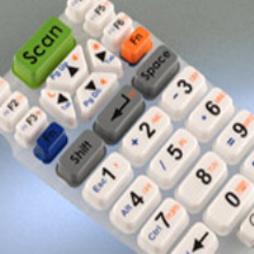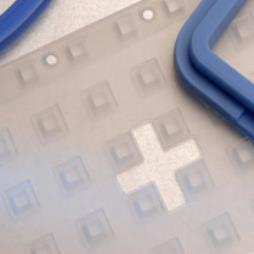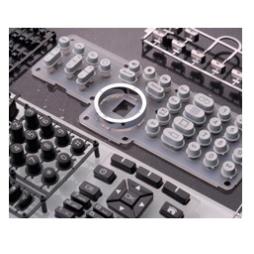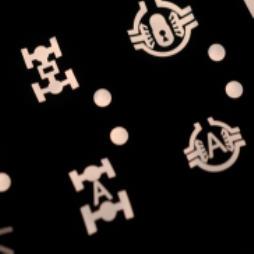Why Are Keypads Made of Silicone?
The polymer can be made translucent or nearly clear and still have good physical properties for objects including silicone keypads. Other organic elastomers require additional reinforcing fillers to boost the physical characteristics, and this would cause opacity. Silicone has good flex resistance and can maintain over a million button operations, perfect for adapting into silicone keypads and other silicone rubber mouldings. Because the base polymer is translucent, pigmenting to any colour is easy. The availability of oven curing inks in silicone rubber of any colour allows a range of graphic options. In outdoor situations, silicone has good resistance to the effects of weathering from ozone or UV light in which other elastomers would fail. By over spraying with an extra hard grade of silicone which will bond to the flexible button, a hard surface feeling can be had on silicone keypads. Production of small batches of silicone keypads in specific grades is possible whereas alternative polymers generally require much larger minimum batch weights to be viable. It is important when selecting a silicone mouldings manufacturer that a plant is dedicated to working with only silicone materials as the processing can be easily contaminated if other non-silicone materials are used. The result of contamination is that chemicals used in organic materials will sequester the cure chemistry and compromise physical properties and risk creating discolouration. Of course silicone rubber doesn't have it all its own way - some physical properties are inferior to alternatives. The resistance to long term contact with aromatic solvents and oils is poor with silicone rubber mouldings. There are, however, secondary surface treatments that can be applied to mitigate the effect. So, overall, even though material selection is always a compromise,when it comes to producing keypads, silicone rubber is the best choice.Visit the Rubbertech 2000 Ltd website for more information on Why Are Keypads Made of Silicone?





